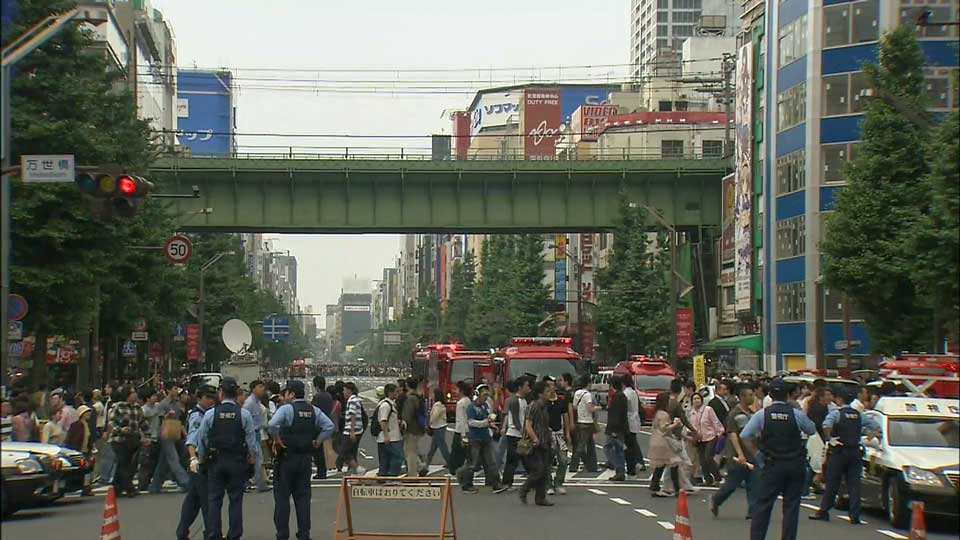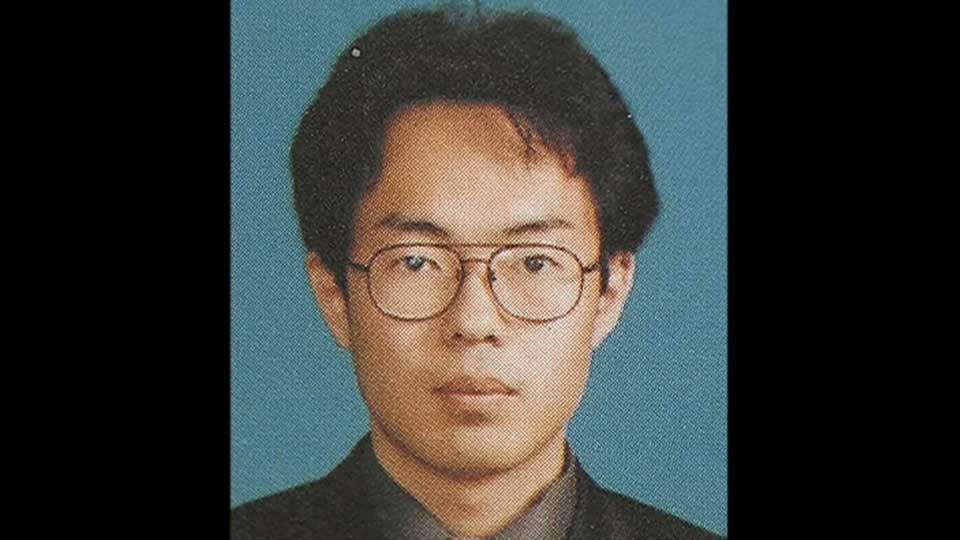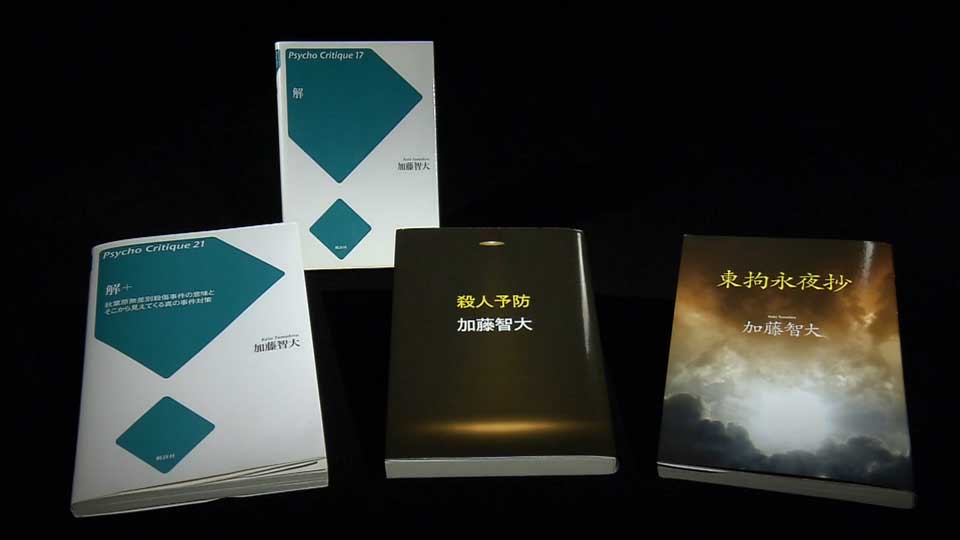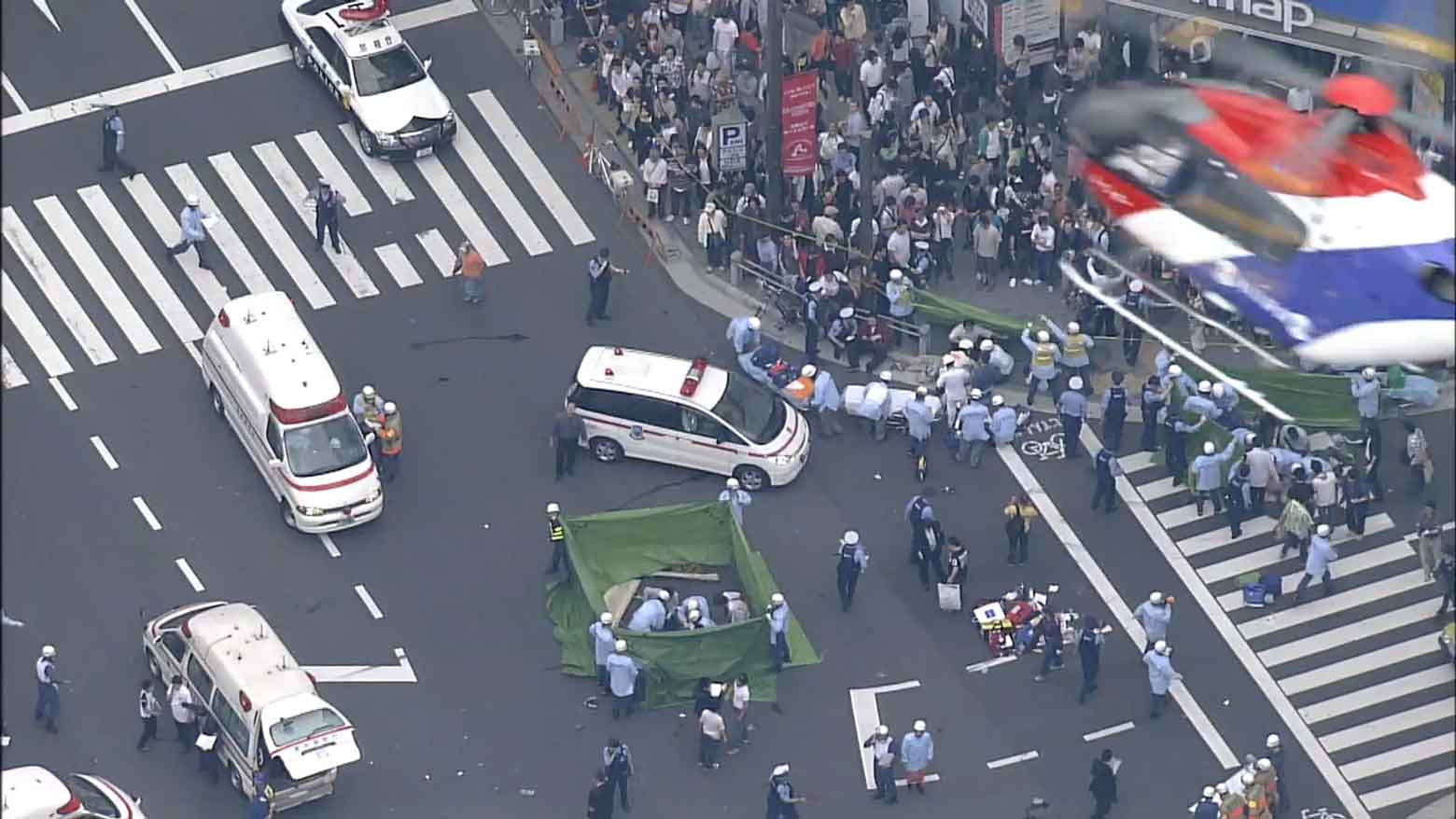Kato Tomohiro, then 25, rammed a truck into a crowd of shoppers in a pedestrian zone in Tokyo's Akihabara district in broad daylight on June 8, 2008. That initial attack left three people dead and two others injured. Armed with a knife, Kato then got out of the truck and fatally stabbed four others and injured another eight.
In March 2011, the Tokyo District Court sentenced him to death. The ruling found that Kato's acts were "brutal" and "inhuman" and that there was no choice but to apply the death penalty.
The decision was upheld by the Tokyo High Court in September 2012 and finalized by the Supreme Court in February 2015. The ruling found that Kato's motives left "no room for leniency."

Who was Kato Tomohiro?
Kato grew up in Aomori Prefecture, where he graduated from a top high school. He then enrolled in a two-year college in Gifu Prefecture.
At the first hearing in January 2010, he admitted to the charges and apologized to the victims and their families. Kato said the very least he could do would be "to reveal what led to the incident."
During the lower court trial, Kato described the day of the rampage. He said when he arrived at the scene he had thoughts of abandoning his plan, but decided to go ahead after realizing he had nowhere he felt he belonged.

Kato didn't make an appearance during the high court trial. He also stopped sending letters of apology to bereaved families and victims. He had four volumes of his collected notes published before his death sentence was finalized.
Online bullying
The court heard that Kato was socially isolated and spent a lot of time online before the killings.
Kato said he had been harassed on internet bulletin boards and wanted to stop those responsible by carrying out an attack.
In the preceding month, he posted a message saying his work contract was to be terminated. He wrote that the downsizing involved about 300 people, and he was unnecessary after all.
Kato also said that he found emotional support on the internet bulletin boards. He described them as the center of his everyday life and a place where he could talk honestly.
Search for an answer
Yuasa Hiroshi was at the scene through his work as a taxi driver. He was stabbed as he ran to help someone on the ground and lost consciousness.
Yuasa has been searching for an answer to what drove Kato to carry out the indiscriminate attack. But the 68-year-old says he hasn't been able to determine the truth to this day.
He assumes that Kato himself didn't know the true reason for why he carried out the killings. "It's very regrettable what he did, but it's also a pity he didn't disclose what I really wanted to know," he says.
Yuasa also feels there must have been more to the investigation, perhaps to prevent a similar attack from happening, as Kato was allowed to live for years after the verdict.

Sato Hideyuki, the head editor at a publishing company, was involved in publishing four volumes of Kato's collected notes. He says he met Kato on about 20 occasions, although he was unable to delve into what he was thinking.
"His notes provide no clue as to why things turned out the way they did, with so many people dead and wounded," says Sato. "I got the impression from the beginning that he would never allow anyone to get to the heart of the matter."
In his notes, Kato wrote about what he expected to happen after the attack. "Having uploaded a message hinting at my plot on a bulletin board, I knew I would end up in prison," he wrote. "I came to think I might as well be executed as sentenced to prison.
Sato says Kato remained silent when he raised topics that could lead him to speak about his personal problems.
Death penalty in Japan
Kato's execution is the first in Japan this year. He is the fourth person to be executed under the administration of Prime Minister Kishida Fumio.
Justice Minister Furukawa Yoshihisa said he ordered the execution after "extremely careful examination."

Japan is one of the few developed countries to retain the death penalty, despite criticism from international communities and local human rights groups.
"Abolishing the death sentence is inappropriate," Furukawa told reporters. "There's no alternative punishment for those who commit extremely serious and heinous crimes."
After the execution, a group of lawyers supporting the victims of crimes said it was a matter of routine for convicts to be put to death in accordance with the law. The Japan Federation of Bar Associations criticized the execution and called for an end to capital punishment.
According to the justice ministry, Kato's execution leaves the total number of death-row inmates in Japan at 106.
